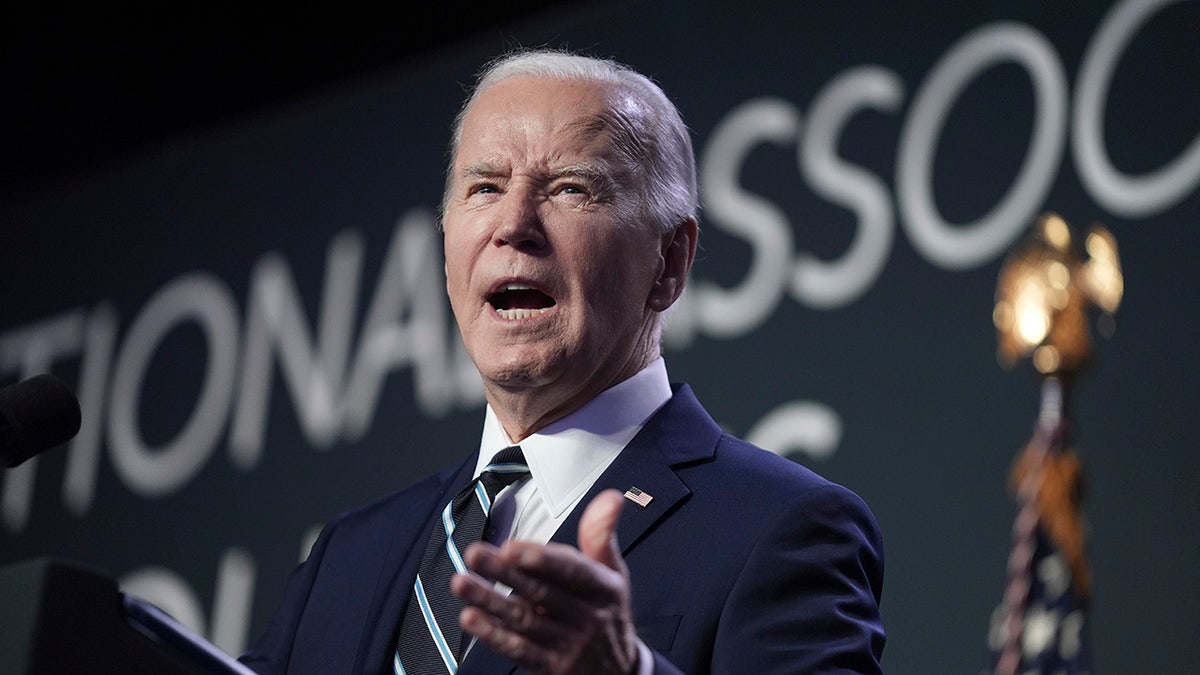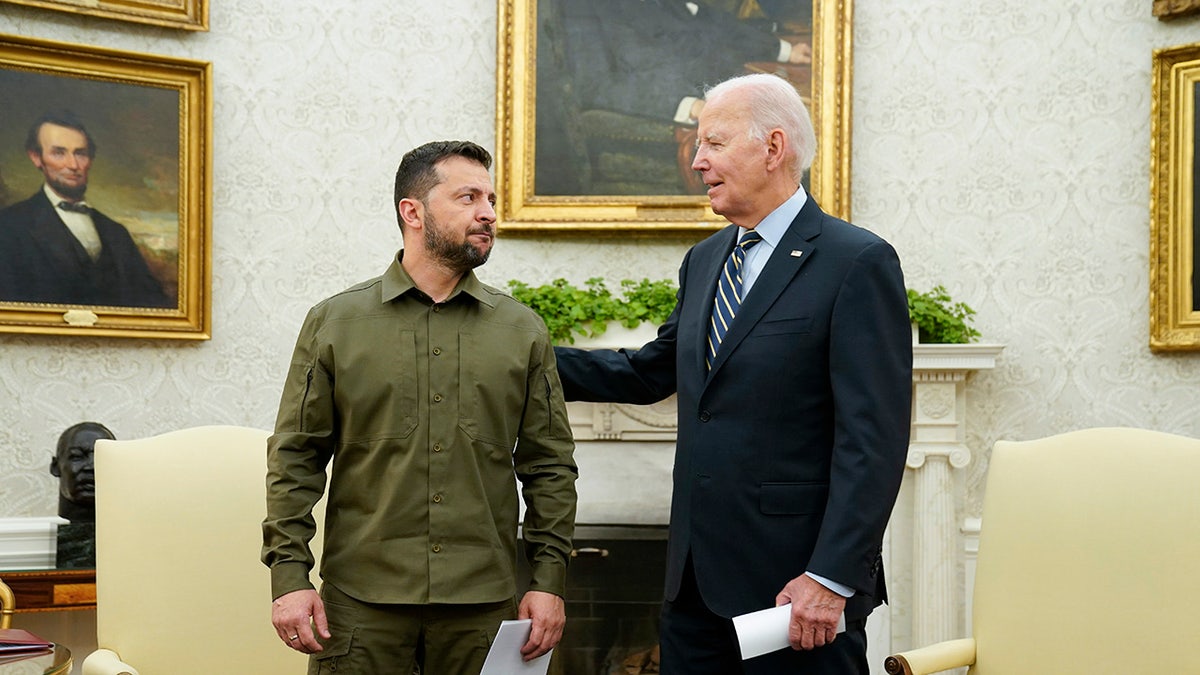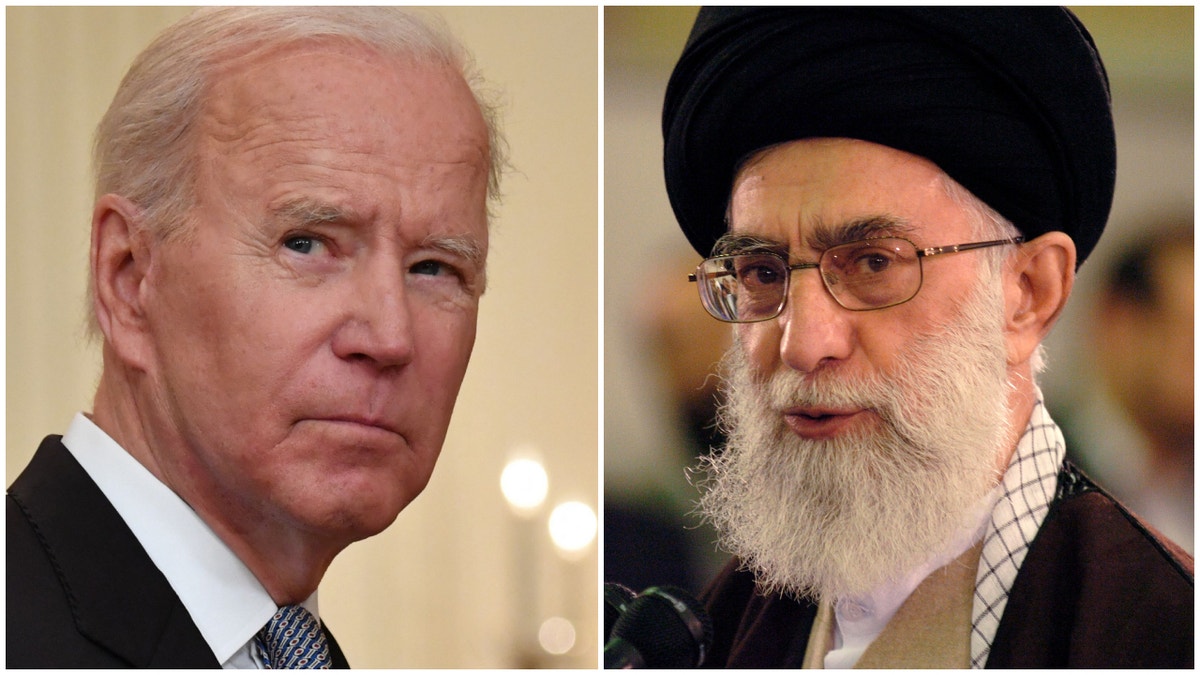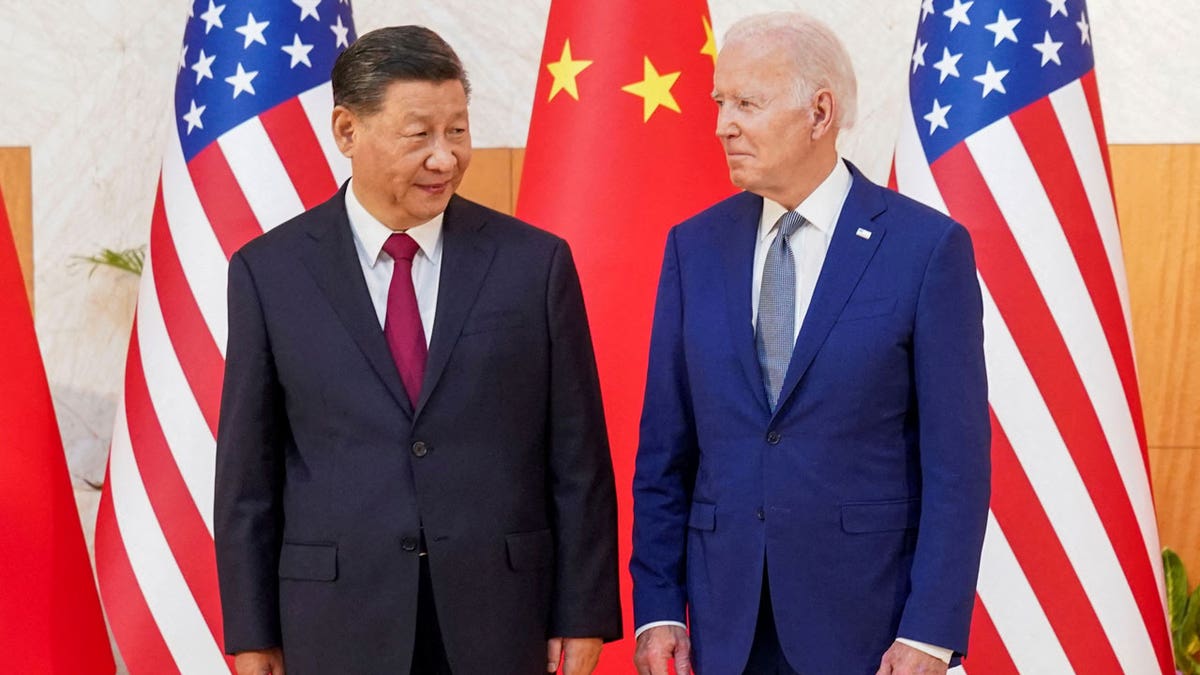Iran proxies continue to attack US forces
Fox News chief national security correspondent Jennifer Griffin has the latest on the Middle East conflict on 'Special Report.'
President Biden's first term in office has been marked by several foreign policy challenges, with some experts giving the president low marks as he seeks a second term in November.
"From the catastrophic surrender of Afghanistan to the brutal Russian invasion of Ukraine to the savage Hamas terrorist attack on Israel, President Biden’s foreign policy has consisted of unanticipated disasters to which his administration has responded ineptly," Victoria Coates, the vice president of national security and foreign policy at The Heritage Foundation, told Fox News Digital.
The comments come as Biden continued to confront several complex global challenges, including ongoing wars in Ukraine and Gaza, continued attacks of U.S. troops by Iranian proxies, and the growing threat of China.
BIDEN'S FOREIGN POLICY SUCCESS STEMS FROM REVERSAL OF TRUMP'S POLICIES, EXPERT SAYS

President Biden (AP Photo/Evan Vucci)
Given the volume of challenges faced by the president in his first term, some experts have lauded his handling of foreign policy challenges, especially when compared to his most likely challenger in this year's election, former President Donald Trump.
"Trump's encouragements to Putin and attempt to blackmail [Ukrainian President Volodymyr] Zelenskyy by withholding weapons from Ukraine (for which he was impeached by the House of Representatives), more than anything Biden did, led to the Russian invasion of Ukraine," David Tafuri, a foreign policy analyst who served as a foreign policy adviser to the Obama campaign, told Fox News Digital last week. "Now, the front line for protecting democracy and rule of law runs through eastern and southern Ukraine."
That front line was solidified by solid anticipation of the looming threat by Biden, Tafuri argued, noting that the president began readying Ukraine for a potential invasion months in advance.
"This gave Ukraine and its allies time to prepare for the invasion, which proved crucial in Ukraine's early success in defending Kyiv as well as most of the territory that Russia thought it would be able to occupy," Tafuri said. "Biden led NATO to work more collaboratively than it has in decades to provide billions of dollars in aid and sophisticated weapons systems to Ukraine, again flustering Russia's intentions."
But not everyone is sold on Biden's handling of the war in Ukraine, especially as the war drags on and the Ukrainian resistance shows potential signs of faltering.
"Biden never authorized a sufficient amount of weaponry to Ukraine to win, opting for virtue signaling instead, or in his words, simply ‘doing something,’" Rebekah Koffler, a strategic military intelligence analyst, former senior official at the Defense Intelligence Agency and author of "Putin’s Playbook," told Fox News Digital.
BIDEN'S FOREIGN POLICY CHALLENGES IN 2023: CHINA, RUSSIA, WAR IN MIDDLE EAST
According to Koffler, the Biden administration has lacked a clear strategy to combat Russian aggression from the start, instead opting to "throw billions of dollars of weaponry to Ukraine and talk smack about Putin."
"Weaponry and technology don’t win wars – we learned it in Afghanistan and many other places. Putin is not afraid of words – he fears action," Koffler said. "Biden announced in the very beginning of Russia’s invasion of Ukraine that he will not authorize U.S. troops deployment into the theater to help Ukraine. It is insanity to give away a key deterrence element."

President Biden meets with Ukrainian President Volodymyr Zelenskyy in the Oval Office of the White House, Sept. 21, 2023. (AP Photo/Evan Vucci, File)
Reached for comment by Fox News Digital, a White House National Security Council spokesperson pushed back against the idea that U.S. weapons aid has been insufficient to help Ukraine, pointing to American aid as being instrumental to Ukraine's success in the Battle of Kyev, where Ukrainian forces beat back Russia's initial invasion of the capital city in early 2022. The spokesperson also pointed to successes in the battle for Kharkiv and the retaking of more than 50% of seized Russian territory by Ukrainian forces, arguing U.S. weaponry was instrumental to the achievements.
"Assuming Congress passes the president’s national security supplemental request, in 2024, we will enable Ukraine to both continue to conduct offensive operations to retake its sovereign territory and to strengthen its defenses against Russian attacks," the spokesperson said. "That includes creating and defending lanes for shipping in the Black Sea, and degrading Russian capabilities throughout the territory Russia occupies in sovereign Ukraine. Our aim through the totality of these efforts is to improve Ukraine’s standing on the battlefield and put Ukraine in the best position to win the war."
Koffler also questioned the idea that Trump withheld weapons from Ukraine, noting that Trump was actually "the first one who authorized lethal military assistance to Ukraine."
As part of Trump's 2020 budget request to Congress, the former president did request $250 million in lethal aid for Ukraine that included Javelin anti-tank weapons, according to a 2019 report from Defense News, a weapon that would eventually become critical in the early days of the fighting against better equipped Russian forces. Meanwhile, the Biden administration at one point froze a $100 million aid package to Ukraine that included lethal weapons, a June 2021 Politico report noted, a move that came just months before Russia's eventual invasion of the country.
All told, Koffler argued that Biden's Russia policy has amounted to no more than "virtue signaling," while Trump's policies were "based on real actions that sought to deter Putin."
"Most importantly, Biden’s policy of pushing Ukraine into NATO was a death sentence to Ukraine," Koffler said. "To think that Putin would fail to enforce his version of the Monroe Doctrine and allow NATO to absorb Ukraine, on which Russia relied for its security for centuries, was not simply incompetent. It amounted to signing Ukraine's death sentence."
But the administration's struggles haven't been contained to Ukraine, Coates noted, pointing to the U.S.'s "catastrophic surrender of Afghanistan" and the president's failure to ensure sufficient investment in defense by European allies.
"He has continued to tolerate the insufficient defense spending and investments by the largest EU economies that President Trump has rightly decried, leaving American taxpayers footing a disproportionate percentage of the cost of the war," Coates said.
Meanwhile, Bill Roggio, the managing editor of Long War Journal, argued that the administration has also seen its fair share of struggles in the Middle East, telling Fox News Digital that Biden's "general policy" in the region has been to "disengage."
"I think the administration has a policy of wishful thinking," Roggio said. "It believes it can impose its will on the Middle East when the exact opposite is happening. Afghanistan is an example of this, to believe that withdrawing from Afghanistan would solve the problem of terrorism, and we saw how that went. The Taliban had a different take on that."
Roggio also pointed to the continued attacks on U.S. forces by Iran-backed proxies, arguing that the administration's actions to deter the attacks have been insufficient.
"This administration believes it can go after the proxies themselves, but on a very limited basis, in order to restore deterrence, but they're not getting to the root cause of the problem," Roggio said.
That root cause is the "Iranians themselves," argued Roggio, requiring the administration to target the country's assets throughout the Middle East.

President Biden and Iranian Supreme Leader Ali Khamenei (Probst/ullstein bild via Getty Images | Nicholas Kamm/AFP via Getty Images)
PENTAGON SAYS ISRAEL-HAMAS WAR ISN'T SPREADING DESPITE US SOLDIERS KILLED IN JORDAN, RED SEA ATTACKS
"If the administration was serious about attempting to restore deterrence, it would go after the Iranian assets themselves, not just the proxies," Roggio said. "The members of the Islamic Revolutionary Guard destroy Iranian intelligence ships that are providing targeting information."
"This doesn't have to be strikes inside of Iran," Roggio added. "Iran has a lot of assets throughout the Middle East and we can go after that. That's what needs to be done."
But a White House National Security Council spokesperson defended the administration's record on Iran, pointing out that the U.S. has administered over 55 sanctions on Iran that have targeted over 550 individuals and entities, continued oil seizures to enforce existing Iran sanctions, and indicted leaders of the Islamic Revolutionary Guard Corps for terrorism and other charges.
Andrew Bates, the White House deputy press secretary, also pointed to Biden's work to secure additional national security funding to target Iran, noting that the administration is seeking to cut off Tehran's financial support for Russia and help Israel strengthen its defensive capabilities against Iran and groups backed by the country, arguing that a small group of Republicans in the House have worked to delay the critical aid.
Away from the battlefields of the Middle East and Europe, Biden has also been forced to confront the growing threat posed by China. Ian Bremmer, the president of Eurasia Group, believes the president has handled relations with China well, telling Fox News Digital last week that Biden has facilitated a "more functional and more stable" relationship with the country and has "not given up anything that matters" during tense negotiations.
Bremmer pointed to the fact that Biden has maintained tariffs on China at the level they were under Trump and has also secured export controls on "semiconductors, cloud computing, the CHIPS Act and the chips agreement with the Netherlands, South Korea and Japan."
BIDEN ATTENDS DIGNIFIED TRANSFER OF FALLEN TROOPS KILLED IN JORDAN DRONE ATTACK
"That is coordinating U.S. industrial policy and probably the most strategically important part of the advanced economy," Bremmer said.
But Koffler also pushed back on the idea that the administration has been successful in China, telling Fox News Digital that deals the president has struck with the country on climate change have been a "fiasco" and only served to benefit China's communist-led government.

President Biden meets with Chinese President Xi Jinping on the sidelines of the G-20 summit in Bali, Indonesia, Nov. 14, 2022. (Reuters/Kevin Lamarque/File Photo)
"Team Biden through regulations seeks to compel Americans to buy more electric cars that are powered by lithium-ion batteries and fewer cars that run on gasoline," Koffler said. "The U.S. is rich in oil and China controls 58% of the global production of lithium compounds and dominates the electric vehicle supply chain. So, Biden effectively seeks to help grow China’s economy and stifle the U.S. economy. The impact of these policies on U.S. national security will be profound."
Meanwhile, Koffler pointed out that the crisis at the southern border has also benefited China, allowing the country to potentially sneak in people hostile to U.S. interests.
CLICK HERE TO GET THE FOX NEWS APP
"On Biden’s watch, record numbers of Chinese are pouring into the United States through the southern border, which Biden unsealed when he took over the presidency after Trump," Koffler said. "More than 24,000 Chinese have entered the U.S. illegally in 2023. It is almost certain that the CCP has dispatched a good number of them."









































